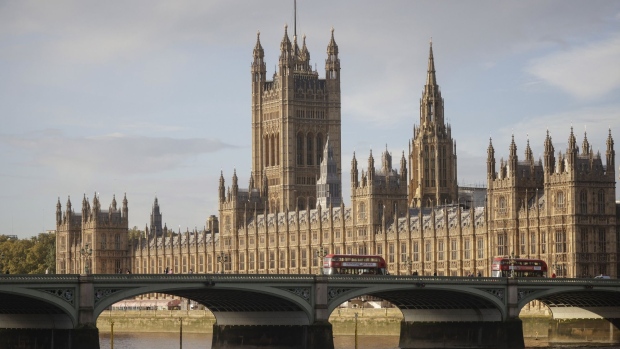May 27, 2022
UK Flexes Its New National Security Powers to Intervene on Deals
, Bloomberg News

(Bloomberg) -- The UK has new powers to intervene on foreign investment deals, and it’s not afraid to use them.
The government announced the first probes into deals under a new national security law this week -- scrutinizing both a Chinese-led takeover of a British semiconductor plant and a French telecom tycoon’s increased stake in BT Group Plc. The powers enable the UK to block, impose conditions and even pull-apart deals retrospectively where there’s a legitimate national security concern. The UK is scrutinizing other deals it’s concerned about, which will be announced in the coming weeks.
While government intervention into foreign investment, particularly Chinese, isn’t necessarily novel the new powers give ministers more flexibility about what it can get involved in. Officials will need to find the right balance of protecting the national interest while not scaring off potentially lucrative foreign investment.
“It’s a step change away from where we were several years ago, there’s no question about that,” said John Adebiyi, a partner at Skadden, Arps, Slate, Meagher and Flom. The fact that deals can be looked at and unwound retroactively “for a lot of market participants that will be very unsettling.”
Governments globally are strengthening their foreign direct investment regimes to scrutinize investments on national security grounds. Western countries, including the US’s CFIUS, are paying particular attention to emerging technologies. The new UK regime highlights 17 sectors including artificial intelligence, synthetic biology, and data infrastructure.
These first deals will act as a test case, said Roger Barker director of policy at the Institute of Directors, a business lobby group. If the process is speedy and the outcome is justified, rather than being bogged-down in politics, people will say the system is working as it should, he said. Officials have 30 working days to carry out an assessment, under the law -- though they can extend that by another 45 days if deemed necessary.
Previously Prime Minister Boris Johnson has shown his government isn’t afraid to weigh in on projects or investment that may cause harm to the UK. He blocked China’s Huawei Technologies Co. from taking part in Britain’s 5G wireless rollout and weighed blocking a takeover of Arm Ltd. by Nvidia Corp. on national security concerns. And ministers are trying to find a way to remove China General Nuclear Power Corp. as an investor in a nuclear project in south-east England.
It comes at a time when the government is increasingly intervening in business. On Thursday, it announced a one-off tax on the profits of oil and gas companies after opposition from MPs who prefer the Conservatives to be seen as a business-friendly, low tax party.
“There’s a lot of people in the Conservative Party who don’t want to be interventionists,” said Barker. “But expectations of society have changed since the pandemic, so when there’s another crisis like the energy crisis people expect a similar sort of rescue package -- it’s quite difficult to get away from that.”
©2022 Bloomberg L.P.





